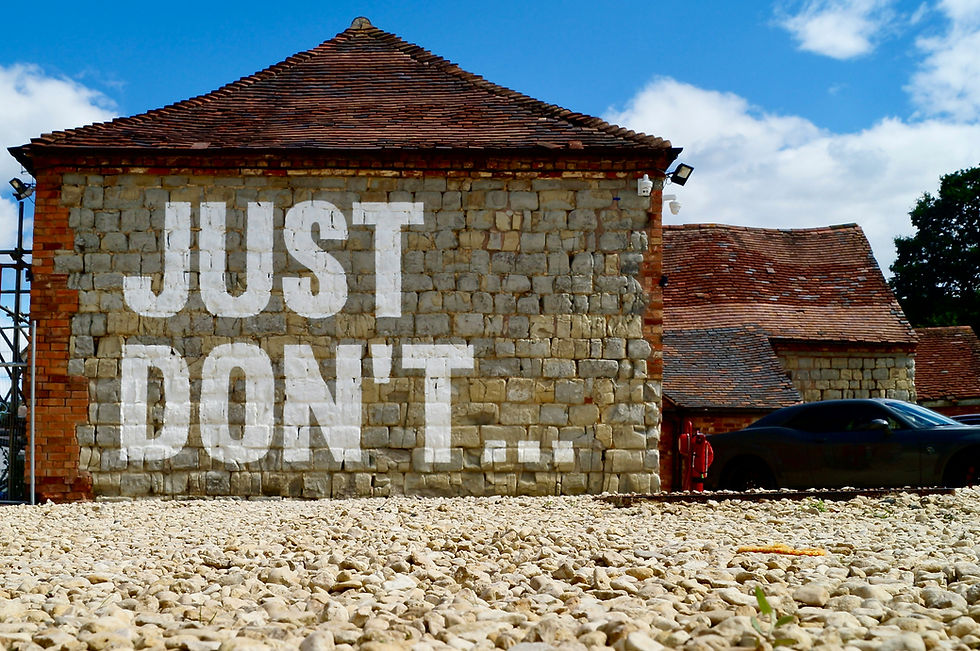How Do You Solve A Problem Like… Me?
- Jessica Kiragu
- Feb 23, 2024
- 3 min read
Updated: Feb 26, 2024
“It’s me. Hi I’m the problem it’s me.” These words hit home. Thank you, Taylor Swift.

Now, I’m not saying that people are problems. Labeling people as problems might be tempting, but it’s unhelpful. If the problem is that other person or those other people, it lets me off the hook.
On the other hand, sometimes I take on the blame. I get stuck believing that I’m the problem and this just feels hopeless. How do I go about fixing a problem that seems to be part of my identity? Locating problems in people, tangling them up with their very being, doesn’t get us closer to a solution.
What strikes a chord with me in Taylor’s lyrics is the blunt admission, “It’s me… I’m the problem.” It’s the honesty in acknowledging a problem and owning up to their part in it. This draws me in.
Even though she’s directly saying I’m the issue, it’s not the idea of people being problems that resonates with me. Instead, it’s the core of the matter. This honest statement reminds me of who I want to be — someone who spots problems and can understand my role in them.
I find this generative. It clues me in to what I can do to fix the stuff that’s going wrong. Realizing how my actions can either escalate or ease a problem increases the chances I’ll actually be able to do something about it. I’m keen on lowering the odds of getting caught up in a pointless blame game and, instead, doing my bit to make our world a better place.
It’s particularly challenging for me to avoid assigning problem labels to people, myself or others, when dealing with racism. This is largely because white folks are responsible for the creation of racism and much of what I learned about racism involves attributing fault. I’m outraged by racism, saddened by racial inequity, and often stumped about what to do. It isn’t enough to just be angry or frustrated and tell others how upset I am, I want to do more.
On my best days, I seek to get at the roots of this troublesome plight. To weed it out at its very place of nourishment and sustenance. I strive to eliminate the things that sustain it, even if doing so means confronting uncomfortable truths about my relationship with the problem.
On my worst days, I ignore racial inequity or let the vastness of it overwhelm me into inaction. Sometimes I allow the racism I witness to slip out of my mind and heart. On these days, I truly feel as though I live out the sentiment, “I’m the problem, it’s me.” Other times, I find it easy to point the finger at others and my response is more “they’re the problem, it’s them.”
Whiteness, the notion that somehow people with pale skin are better, smarter, more deserving, or more human, is the essence that created and sustains skin color based injustice. It also ties me, a white person, to the problem of racial inequity. Throughout US culture, stories, beliefs, behaviors, and structures intertwine to make it so white preference and dominance is our lived reality. These are the very roots that I need to help destroy. The thing is, I’ve long had trouble seeing and owning up to whiteness.
There are numerous obstacles that hinder the recognition and deconstruction of whiteness because, unfortunately, US culture was built to protect it. Whiteness was set up as the standard against which all people are measured. It’s a false and harmful metric, even for white folks.
Generally, I’ve found that to know about a problem, it helps to learn from those closest to it. I can’t help create racial equity without first learning from those whose lives racial inequity most touches, people of color. These individuals and communities understand the intricate details and daily realities of racism.
Those who experience the most violent effects of racial injustice are likely the best guides in envisioning a life without it. But from my limited knowledge and experience, it’s clear that undoing whiteness is essential to achieving mutual liberation and flourishing together. It’s how we get free of the problem of racism.
This is why it doesn’t make sense for me to try and help solve racism without also working to deconstruct whiteness. After all, whiteness is something that’s hugely problematic and, in the US, we’ve yet to honestly and consistently address it.




Comments